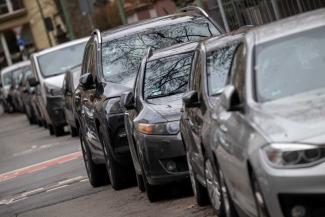Reducing emissions
OECD assesses carbon pricing internationally

Carbon pricing helps nations to achieve their climate goals while increasing tax revenues at the same time. According to the authors from the Organisation for Economic Co-operation and Development (OECD), more needs to happen for countries to achieve net-zero emissions. Their report highlights several strong points of the carbon pricing approach:
- It provides across-the-board incentives for firms and households to reduce carbon-intensive energy use and shift to cleaner fuels.
- It sends price signals for investors, making clean technologies more attractive.
- Unlike energy efficiency standards and other regulations, pricing systems leave households and businesses some flexibility.
- They boost government revenues wherever they apply.
- In developing countries, carbon pricing can be a component of scaling up national revenue systems and making tax systems more effective.
The OECD team warns, however, that too many governments subsidise fossil fuels, thus lowering the costs of carbon emissions. The result is more emissions and tighter government budgets.
Carbon pricing can be done in two ways. Either governments tax emissions, or they sell emission permits, which can then be sold or bought on markets at varying prices. Economists tend to prefer the second approach, because it provides more flexibility, with prices rising and falling according to demand.
The EU uses an emissions trading system (ETS). In actual terms, emitters in the EU paid € 53 per tonne CO2 in 2021. That was three times more than in 2018 (€ 17). In the UK, where a similar ETS is in force, the price was the equivalent of € 56 in 2021. The main reason for the higher prices was that governments charged more for the initial permits. The systems keep evolving – and new ones are being introduced. China started a new national ETS in the electric-power sector. The price is the equivalent of only six dollars so far, as the OECD authors report.
No coherent strategy
Many countries raise fuel taxes, for example on diesel or gasoline. These taxes are called “explicit carbon pricing” in the OECD’s technical jargon. In many places, these taxes have been increasing considerably before the Covid-19 pandemic. The OECD authors bemoan that there typically is no coherent taxation system. Around the world, taxes on coal tend to be more than 10 times below those for diesel or gasoline even though coal is the most polluting fuel.
Moreover, taxes do not apply to all sectors equally. The report states that road transport is affected by fuel taxes in many countries, whereas fuel is subsidised in agriculture, fisheries and in the context of buildings. Some countries subsidise fuel use on roads too. The various taxes charged in different countries typically do not add up to consistent efforts to reduce carbon emissions. The authors note that fuel taxes tend to be particularly high in Europe and particularly low in least-developed countries.
When carbon prices rise, government revenues increase. The exact impact, however, will fluctuate over time. If, as is intended, higher energy prices reduce energy consumption – and thus the related emissions – revenues will eventually decline again. The OECD authors insist, however, that the additional revenue can be crucial during the transitional phase when adjustment costs are high. In principle, this money can be used for any public purpose. At the same time, the OECD experts make it very clear that subsidising fuel is destructive. It leads to more environmental damage and depletes government budgets.
Since climate change affects everyone, the OECD experts argue that it makes sense to impose energy prices on everyone too. They admit, however, that some people may be too poor to cope with the higher costs. In the authors’ eyes, this is not a reason to keep prices low. They propose special support for the people concerned.
The report acknowledges that several countries have lowered energy taxes in response to rising global prices in the course of the war in Ukraine. Even where such tax relief is supposed to be temporary, the experts warn, it may prove hard to roll back. They point out that targeted support would help vulnerable people more, cost governments less and not distort price incentives to switch to renewable alternatives. If governments keep prices low, those benefit most who use most energy, and they tend to be prosperous, the OECD insists.
In Egypt, the report states, a successful reform of fuel subsidies resulted in financial savings, so the government was able to increase funding for health and education programmes. Moreover, it could afford a stimulus programme to help the economy recover from the Covid-19 crisis.
The OECD advises developing nations to avoid some of the transition costs that the rich world is experiencing. The point is not to build new infrastructure that will require fossil-fuel use for decades to come. Instead, it makes sense to opt for low-carbon technologies early on, and price incentives can help to make that happen.
Even though there has been progress in regard to carbon prices, the authors insist that there still is a very long way to go for the approach to fulfil its potential to reach net-zero. According to them,
- the bulk of energy use is still not covered internationally,
- the policies implemented by governments are still too timid, and
- the response to Russia’s invasion of Ukraine has undone some of the progress made in the past.
Link
OECD, 2022: Pricing greenhouse emissions (also available in French).
https://www.oecd.org/tax/tax-policy/pricing-greenhouse-gas-emissions-turning-climate-targets-into-climate-action.htm
Prince Thompson is from Ghana and studying development management at Ruhr Universität Bochum. He is currently an intern at D+C/E+Z. His masters programme is affiliated to AGEP, the German Association of Postgraduate Programmes pertaining to international development.
prince.thompson94@yahoo.com










